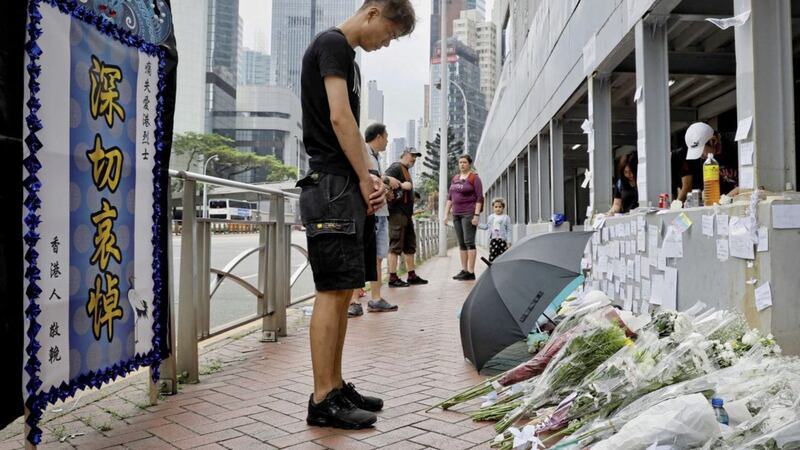There is something quite inspirational about the people of Hong Kong who have taken to the streets in defence of their rights.
In the face of one of the most oppressive regimes on the planet, they have demonstrated that solidarity can win through. Their bravery is all the more remarkable given this month is the 30th anniversary of the massacre at Tiananmen Square – an act of state brutality to rank with the worst in history.
The trigger for the protests was the Hong Kong government’s proposals to make it easier to extradite its citizens to mainland China where the courts are in the grip of the Communist Party.
It is not just in China where control of the justice system is central to the ambitions of rogues and tyrants. We have seen it recently in Turkey, in Poland and in the United States where Republicans used control of Congress to prevent President Obama from exercising his right to appoint a Supreme Court justice.
Donald Trump, Brett Kavanaugh and the evangelical right were the beneficiaries.
China, and how to deal with it, remains the great conundrum of our age. It is a rich and diverse part of the world, with a heritage every bit as remarkable as our own.
The Chinese invented paper-making, and presses with moveable type; it was a Chinese alchemist who made the first gun-powder, and the Chinese fired the first rockets, almost 2,000 years ago. Porcelain came from China, and the tea to drink from it too.
All these things and more – silk, spices, fabulous natural resources – made it attractive to European powers.
Incredible injustices were done by them, not least by Britain which used Indian opium as ‘currency’, and (with the help of Portadown-born Sir Robert Hart) looted the country. The silver collection gifted to Hart by the dowager Empress of China on his retirement in 1908 now belongs to Queen’s University Belfast.
Mao, like many ‘liberators’, exploited the injustices of imperialism. The long march that swept Mao to power began with steps from the Foreign Office in Whitehall, not Jiangxi.
Much water has run under the bridge since then. Decades of isolation until Richard Nixon made his fateful visit to China in 1972; the cautious reform and re-evaluation of Maoism, through to the horrors of Tiananmen; the return of Hong Kong by Britain in 1997, and the establishment of ‘one country, two systems’.
On the face of it, China today has been transformed. Investing heavily in education, it has reaped the benefits of technological change; it has encouraged entrepreneurialism and transformed its economy; it has taken its place among the great powers of the world, and it is only a matter of time until it displaces the United States as the primary global economic powerhouse.
China is extending its influence too through investment in Africa, a rapprochement with Russia, and through investment in business and infrastructure in Britain, Europe and the United States.
Our homes are buzzing with tech produced in Chinese factories, our goods and services are dependant on Chinese investors, many of our higher education institutions depend on Chinese students for their economic survival.
Yet behind it all, there is a regime every bit as cold and calculating as Mao’s and that of his cultural revolutionaries.
The current president, Xi Jinping, has tightened his grip on the ruling party; he controls the means of communication, including the internet; and he has ruthlessly suppressed dissent.
Among the groups most appallingly repressed are Chinese Muslims living in the province of Xinjiang, many millions of whom have been forced into concentration camps for indoctrination. The world’s indifference to their plight is one of many stains on our era.
Money talks, and China has money. Xi Jinping has been feted – unlike Donald Trump he has ridden in a carriage down the Mall with the queen – and politicians have bitten their lips for fear of offending him.
There should not – must not – be a return to the politics of isolation. Nixon, an anti-Communist hawk, knew that change could best be effected through engagement.
But there must also be a concerted campaign to make the Chinese government face up to its responsibilities to its people – to those who have a right to have their voices heard; to the many millions who want to worship free from interference from the state; to those who have a right to wealth on the basis of their own hard work, not who they know in the party.
The people of Hong Kong, who have so much to lose, have shown the way. We must take up their torch.









